
The extracurricular activity of farming in schools teaches students about their local food system, engages them in meaningful, hands-on learning activities as well as links them directly with farmers in their community. School farms boost learning and engagement, and provide innovative ways to teach students about well-being and green issues.
Large number of students are participating in farming activities at their schools which are being run under the initiatives like ‘Farm Your Country’ and ‘Khayr Qatarna’ launched by the Ministry of Education and Higher Education and Ministry of Municipality and Environment in coordination with government organisations and private firms.
Some schools which are not part of the initiatives also spotted initiating farming activities at their school premises. The Glorious International Kindergarten operating at Al Aziziya recently asked its toddlers to bring a plant with them to participate in the farming activity held at the school recently.
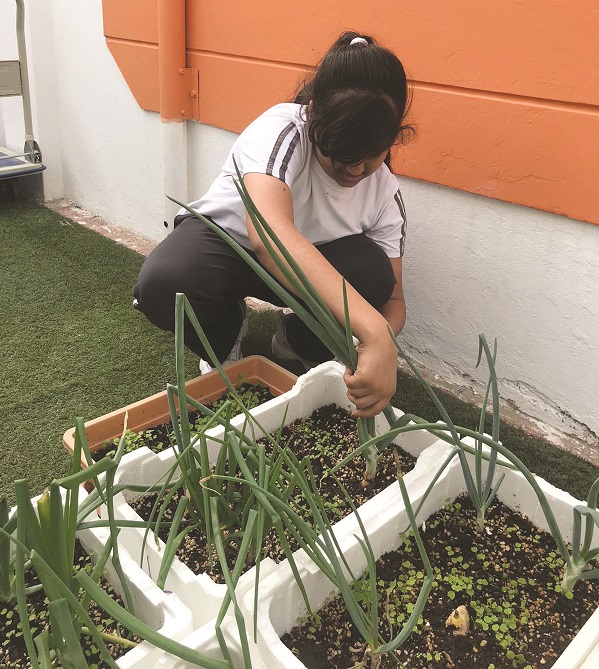
The children were taught about the importance of the farming in their lives during hours-long farming activities.
“Through the farm, the students build a real connection and relationship with the world in which they live,” a teacher from Glorious International Kindergarten told The Peninsula.
She said that if children don’t have this relationship and don’t feel the soil in their hands then it really doesn’t matter to them to learn and care from where their food comes.
“Students gain access to healthy, local foods as well as education opportunities such as school gardens, cooking lessons and farm field trips,” said the teacher.
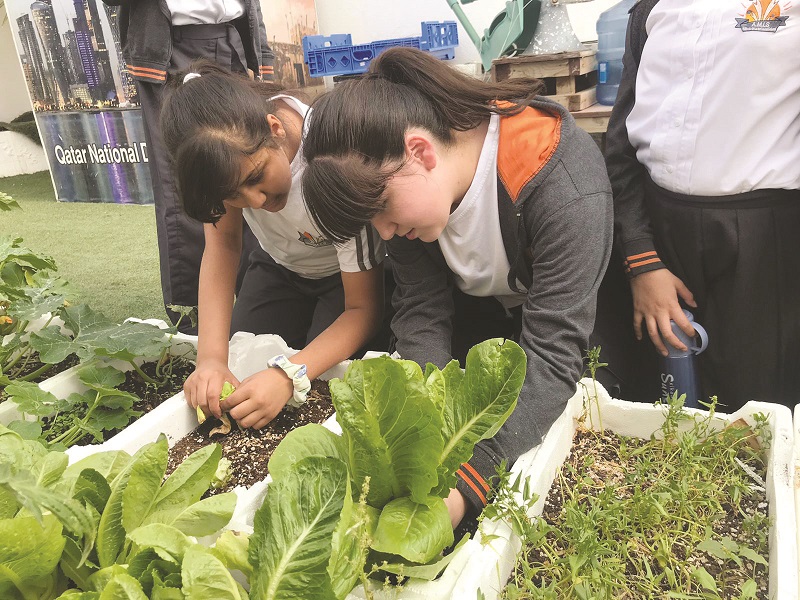
By the beginning this harvesting season, the students at many schools harvested with their own hands large quantity of vegetables which they planted by the beginning of agricultural season 2019-20 under the initiative ‘Farm Your Country’.
The initiative was launched in schools by the Ministry of Municipality and Environment representative by the Public Parks Department in collaboration with Al Faisal Without Borders Foundation (ALF) to educate students about the importance of agriculture and environment.
The project aims to implement plans and programmes in the field of agricultural awareness for school students and to achieve the desired goals for protecting the environment from pollution and preserving natural resources.
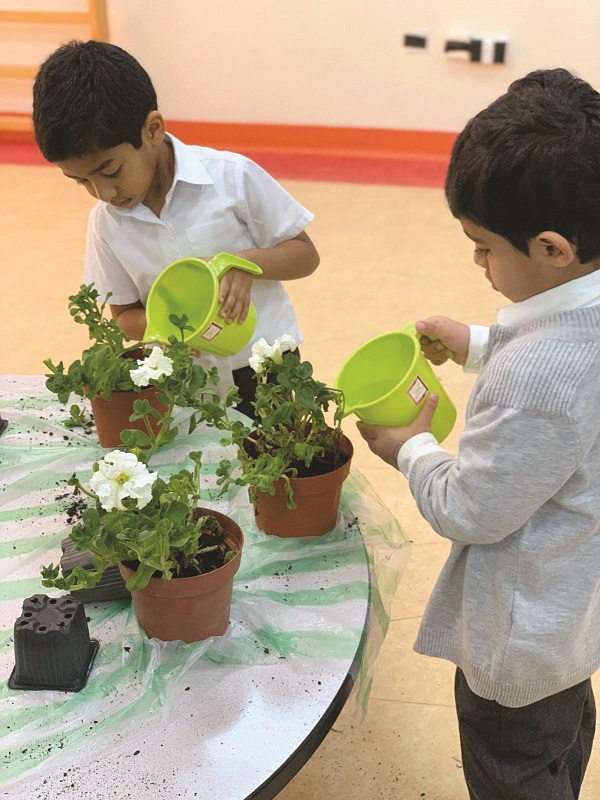
A number of students from Al Bayan Primary School for Girls harvested leafy and other type of vegetables from school farm. The students of Tariq bin Ziyad Secondary School, Omar bin Al Khattab Secondary School and Hamzah bin Abdul Mutablib Preparatory School also participated in the ‘Farm Your Country’ initiative by cultivating flower plants at the premises of their schools for the agricultural season 2019-20.
Under a similar initiative ‘Let Us Cultivate’, the Public Parks Department at the Ministry of Municipality and Environment recently organised an awareness programme for a group of the students of Halima Sadi Kindergarten for Girls. The programme aims at educating students about the importance of agriculture and kitchen garden.
The ‘Farm Your Country’ initiative is the result of a bilateral agreement between the Ministry of Municipality and the Environment and Al Faisal Without Borders Foundation as community engagement through schools to raise awareness of the importance of agriculture and afforestation.
Under the initiative, school gardens are used to build national capability among students since childhood in a bid to boost national food security programme. The initiative also aims at building skills among the students enabling them to meet their food needs and giving them the opportunity to cultivate by their own hands for self-reliance.
The Public Parks Department provides support to the project of farming your homeland in an integrated technical manner. Under the initiative, school students compete in cultivating vegetables at the premises of their schools.
Last year, 34 public, private and international schools participated in the initiative. Agricultural engineers from the of Public Parks Department were assigned to provide guidance and instructions directly to students with the assistance of supervisors from each school at the rate of 10 students from each school.
The season runs for four months from November to February. Each school installed 30 thermocol boxes to reduce the operational cost of the project, especially in schools that do not have a school garden, and the use of alternative means in the lack of fertile land for agriculture. According to the experts, the initiative helps educate students about the importance of farming and agriculture in their life.
A number of schools are also participating in ‘Khayr Qatarna’ initiative. They are growing plentiful crops of fruit and vegetables including strawberries, cucumbers, tomatoes, cherry tomatoes, coloured peppers, red cabbage and green beans.
All of the produce are being grown in large-scale, climate-controlled greenhouses installed at the schools by ‘Your Health First’ as part of the Khayr Qatarna initiative, which was launched in 2018 to help make a positive contribution to Qatar’s self-sufficiency.
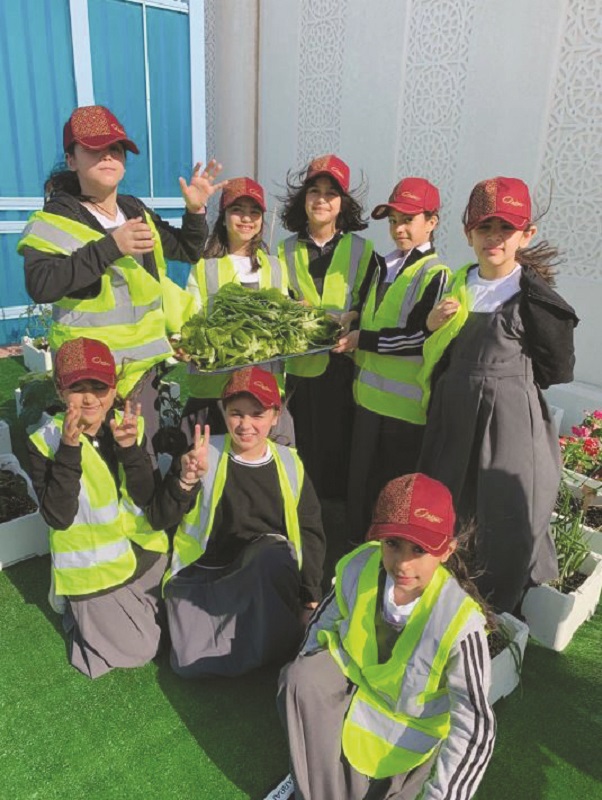
The initiative also teaches students valuable lessons about healthy eating, agriculture, environmental awareness, and sustainability issues.
Students are also learning about key business operations, such as logistics, commerce and economics, helping the younger generation gain the knowledge required to achieve the goals of Qatar National Vision 2030.
Your Health First, which is the flagship public health campaign of Weill Cornell Medicine-Qatar (WCM-Q), initially installed large-scale greenhouses at many schools as part of Khayr Qatarna’s pilot programme.
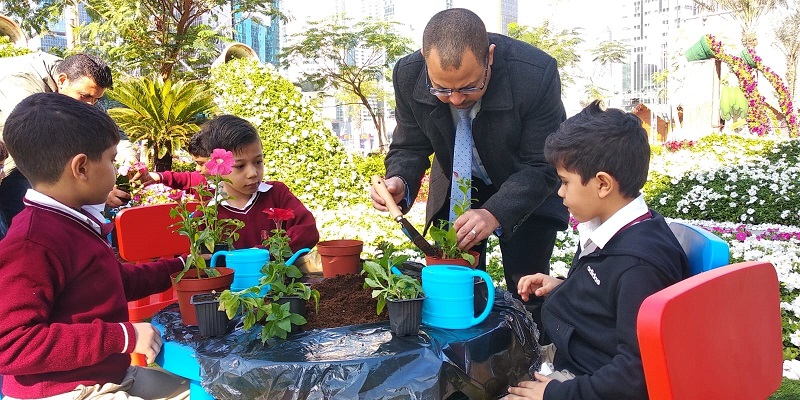
The fruits and vegetables grown in the greenhouses are distributed with Khayr Qatarna branding to the community through local supermarkets and also among the school students’ families and their communities. All proceeds from sales are reinvested in the project to allow further expansion.
The Public Park Department at the Ministry of Municipality and Environment also arranged trips of students in collaboration of the schools and the Ministry of Education and Higher Education to public parks.
A group of students from Al Zakhir Kindergarten were taken to Al Tawasul Traditional Park at Al Khor and Al Zakhira Municipality to introduce them with flowers and plants. The students also received lessons on how to cultivate plants. The Department gave flower plants to the students to water and care it at home for a practical training.





